Report: Biden Admin Has Paid Taliban Nearly $11 Million Since Withdrawal Disaster
The Special Inspector General for Afghanistan Reconstruction found that Joe Biden has overseen $10.9 million in payments to the Taliban.

The Special Inspector General for Afghanistan Reconstruction found that Joe Biden has overseen $10.9 million in payments to the Taliban.

Recent reports from the U.N. and America’s top watchdog agency on Afghanistan indicate that al-Qaeda is thriving in Afghanistan nearly three years after the fall of Kabul to the Taliban.
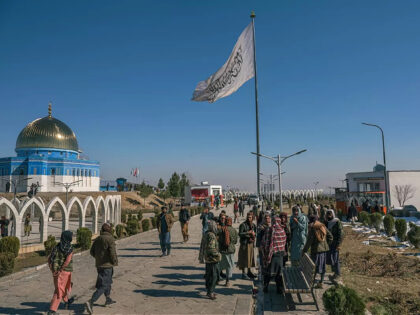
John Sopko, the Special Inspector General for Afghanistan Reconstruction (SIGAR), issued his latest report on Monday.
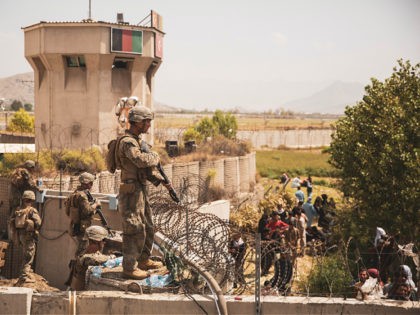
House Foreign Affairs Committee Chairman Michael McCaul says he is “prepared to put a hold on funding” for Afghanistan due to Taliban theft.

Two years after the fall of Kabul, the Biden administration has failed to shake the Taliban’s iron grip on Afghanistan.

Special Inspector General for Afghanistan Reconstruction (SIGAR) John Sopko said on Thursday his agency has uncovered “some really horrific information about the problems with the U.N. operations in Afghanistan.”
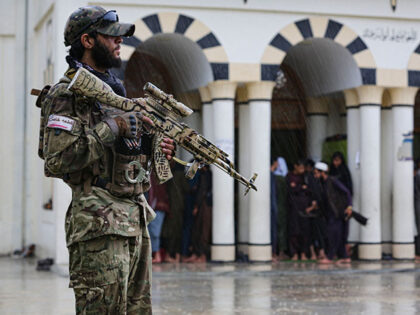
Nikkei Asia reported on Sunday that advanced sniper rifles, night vision goggles, and other top-shelf American military equipment left in Afghanistan during President Joe Biden’s disastrous withdrawal are resurfacing in the hands of Tehreek-e-Taliban Pakistan (TTP) terrorists.
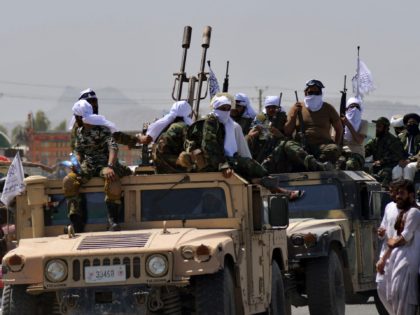
The Biden administration is proceeding with talks to unfreeze the $7 billion in Afghanistan’s assets held by the U.S. Federal Reserve, Reuters reported on Monday, despite the Taliban failing to meet human rights commitments and harboring al-Qaeda mastermind Ayman al-Zawahiri in Kabul.

The office of the Special Inspector General for Afghanistan Reconstruction (SIGAR) has published its final report on the “theft of funds from Afghanistan,” with particular attention to “allegations concerning President Ghani and former senior Afghan officials.”

John Sopko, the Special Inspector General for Afghanistan (SIGAR), wrote a letter to Secretary of State Antony Blinken, USAID Administrator Samantha Power, and the heads of several congressional committees on Wednesday complaining that the Biden administration abruptly stopped cooperating with his investigations after he issued a report critical of President Joe Biden’s withdrawal from Afghanistan.
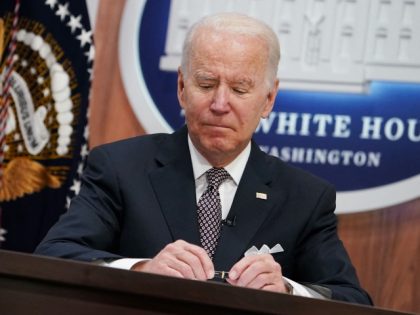
The latest report from the Special Inspector General for Afghanistan Reconstruction (SIGAR), the federal government’s designated watchdog on America’s role in the country, blamed President Joe Biden’s extension of the Afghan war — then abrupt withdrawal from the country — for crushing the morale of the Afghan National Defense and Security Forces (ANDSF), paving the way for the Taliban’s swift takeover.
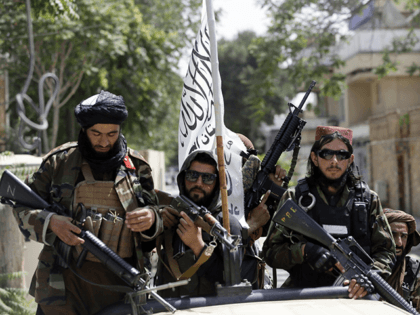
The former finance minister of Afghanistan, Khalid Payenda, accused officials in the now-defunct government he served on Wednesday of failing to report soldier deaths to continue cashing those troops’ salaries for themselves.

The top federal agency in charge of oversight of American involvement in Afghanistan published a report on Friday stating the U.S. government spent nearly $89 billion on “training and equipping” the Afghan military in the past two decades.
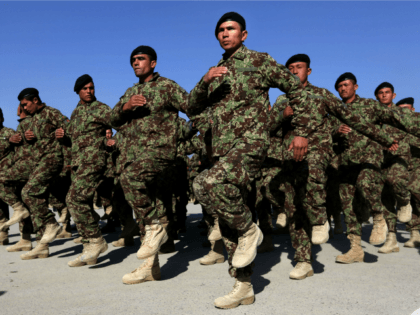
Biden has dubbed his presidential agenda “Build Back Better,” but so far, he has only succeeded in building the Taliban back better.
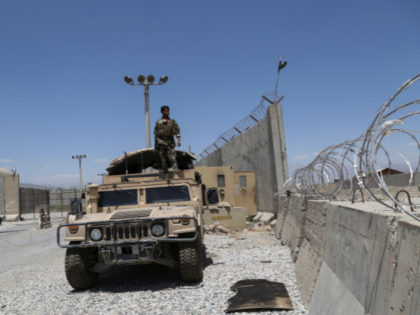
The Taliban seized a staggering quantity of American military vehicles, equipment, and weapons when it overran Afghanistan in a week. President Joe Biden, a Democrat obsessed with gun control, ended up giving billions of dollars of American weapons to the Islamist fanatics that helped perpetrate 9/11.

U.S. Special Inspector General for Afghanistan Reconstruction (SIGAR) John Sopko accused top U.S. military officials in an interview on Thursday of knowing “how bad the Afghan military was” but keeping problems hidden, leading to shockingly swift battlefield gains by the Taliban insurgency after American troops withdrew.
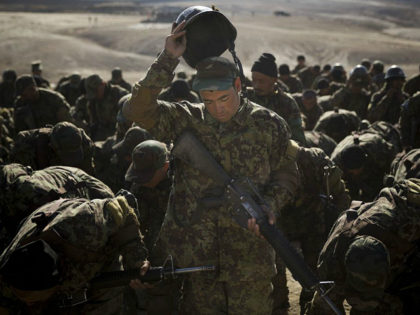
The office of the Special Inspector General for Afghanistan Reconstruction (SIGAR), a government watchdog agency, revealed in a report published Tuesday that American taxpayers lost about $19 billion to “waste, fraud, and abuse” in Afghanistan in the past decade.
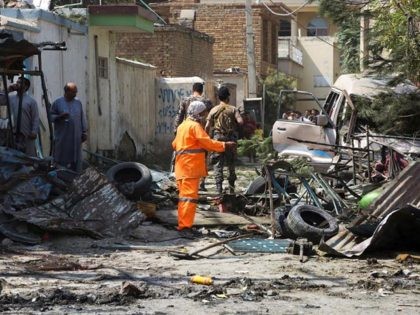
Special Inspector General for Afghanistan Reconstruction (SIGAR) John Sopko testified before the House Foreign Affairs Committee on Wednesday and complained about the “odor of mendacity” surrounding everything related to Afghanistan. Sopko said U.S. officials have “routinely lied” to the American public about numerous issues related to war and reconstruction in Afghanistan.
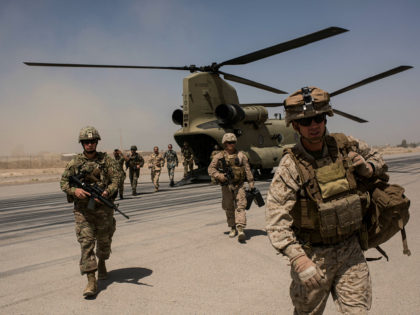
Pentagon leaders pushed back against the idea that the department’s leaders have not been transparent on progress in the Afghanistan War.

The U.S. goal of reinventing Afghanistan into a Western-style centralized democracy and a free-market economy from a tribal society that was unsuited for either by throwing billions of American-taxpayer dollars was doomed to fail, the Washington Post revealed Monday in a multi-series investigation.

The strength of the Afghan security forces stands at its “lowest level” in years, a U.S. watchdog agency revealed Thursday.
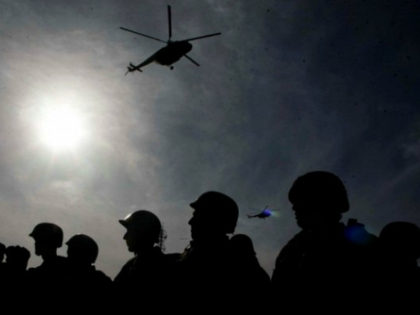
Inadequate oversight for the U.S. taxpayer-funded $83 billion effort to develop the Afghan security forces has led to a waste of money and hindered the training and capabilities of the war-ravaged country’s troops, an American watchdog agency revealed this week.
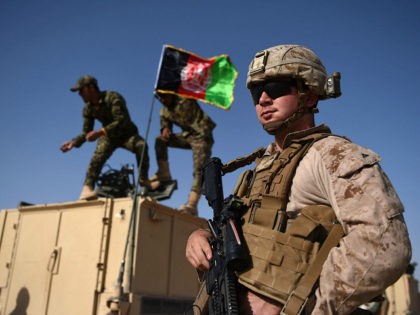
The United States government has decided to either classify or do away with “almost every” metric for success or failure in Afghanistan, John Sopko, the U.S. Special Inspector General for Afghanistan Reconstruction (SIGAR), revealed this week.

Taliban narco-jihadis killed at least 68 members of the U.S.-backed Afghan National Defense and Security Forces (ANDSF) and injured 38 others in fierce clashes over the weekend in the terrorist group’s opium-rich stronghold of Helmand, Afghanistan’s largest province located along the Pakistani border.

Some members of the United States-funded and trained Afghan National Defense and Security Forces (ANDSF) reportedly terrorized and robbed local Afghan personnel hired under U.S. Army Corps of Engineers (USACE) contracts of nearly $1 million in property and equipment between 2010 and March of this year.
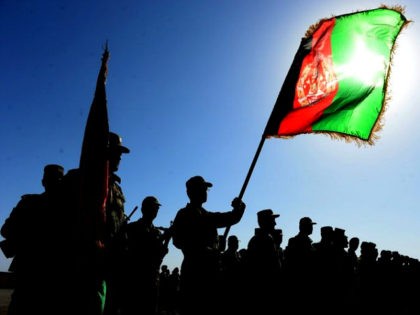
The U.S. is no longer interested in developing a “stand-alone” counternarcotics strategy in Afghanistan, choosing instead to back Kabul-led efforts to combat the opium and heroin trade that generates most of the Taliban’s funding.

The number of Afghan districts under the control or influence of Kabul “reached the lowest level” since the American government began keeping records in November 2015, the U.S. Special Inspector General for Afghanistan Reconstruction (SIGAR), a watchdog agency appointed by Congress, reported on Thursday.
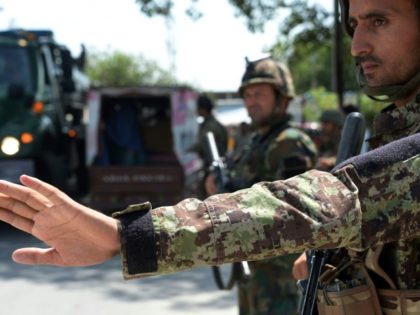
Nearly 17 years after the Afghanistan War began, there are few signs of progress and indications the Taliban is increasing its hold onto power in Afghanistan, despite continued U.S. support for the Afghan government.

The U.S. is spending hundreds of millions of dollars on agricultural projects in Afghanistan, including irrigation canals linked to opium and heroin production.
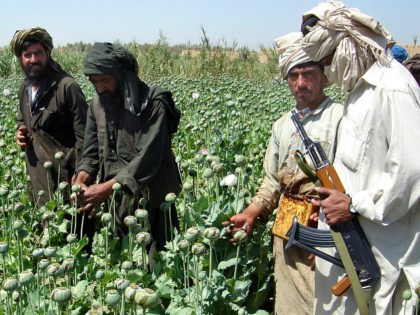
The unprecedented level of Afghan opium cultivation has spread across the country to areas held by both Taliban terrorists and the U.S.-backed Kabul government.

The U.S. has wasted at least $15 billion in taxpayer dollars on failed reconstruction projects in Afghanistan.
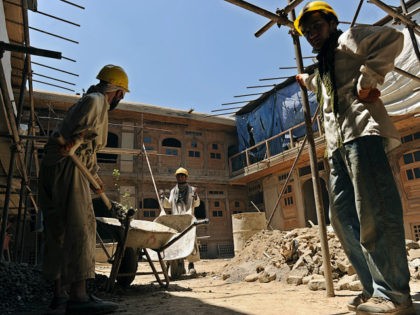
The historic production of opium and its heroin derivative in Afghanistan — with a record output value of up to $6.6 billion last year, or nearly a third of the country’s entire gross domestic product — appears to provide better prospects for job security than any other industry in the nation.

Russian President Vladimir Putin and Indian Prime Minister Narendra Modi have reportedly agreed to break ground on their countries’ first joint project in Afghanistan despite backing opposing sides in the Afghan war.

The $4.7 billion spent on America’s stabilization efforts in Afghanistan, mainly under former U.S. President Barack Obama’s watch, has “exacerbated” the war by fueling corruption and bolstering support for Taliban jihadists, a watchdog agency found.

Up to half of the estimated $126 billion in U.S. taxpayer funds devoted to nation-building efforts in Afghanistan are “misspent, mismanaged, or disappears entirely,” a top staffer from Sen. Rand Paul’s (R-KY) office testified this week.
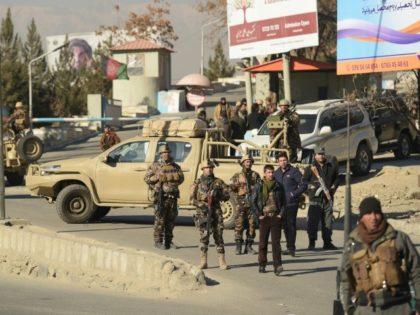
The World Bank is allowing Kabul to use the Afghanistan Reconstruction Trust Fund (ARTF), financed by American taxpayer money estimated in the billions, to pay for “dysfunctional” projects and possibly even “ghost workers,” a U.S. watchdog agency announced Wednesday.
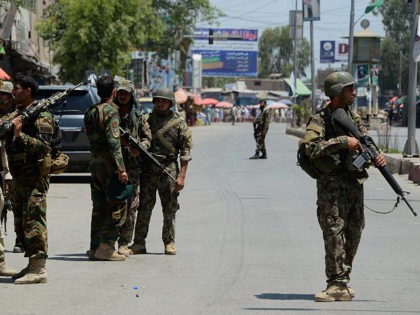
Afghan cash made available in large part by billions in American taxpayer funds served as a “source of hard currency” for Afghanistan’s neighbor Iran, helping the Islamic Republic weather the storm during the U.S.-backed economic sanctions, according to an American watchdog agency.
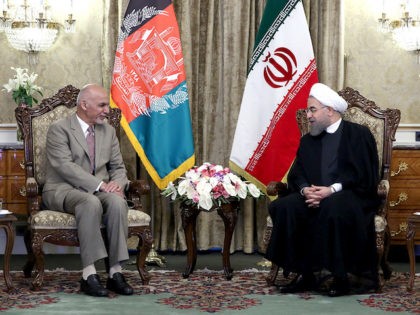
The U.S. Inspector General for Afghanistan Recon (SIGAR), a congressionally-mandated watchdog agency, documented claims in a report released this month that the American military in Afghanistan is purchasing fuel for the Afghan security forces from Iran in violation of United States sanctions.

The U.S. government has spent an estimated $60 million on a high-voltage power system in Afghanistan that remains inoperable because people still reside along the transmission line route, and turning it on “presents life and safety hazards,” an audit by an American watchdog agency found.

The Afghan National Army’s (ANA) is inaccurately collecting, screening, and recording blood samples, resulting in the death of an unknown number of soldiers who received the wrong type of blood when injured in combat, revealed a watchdog agency.
